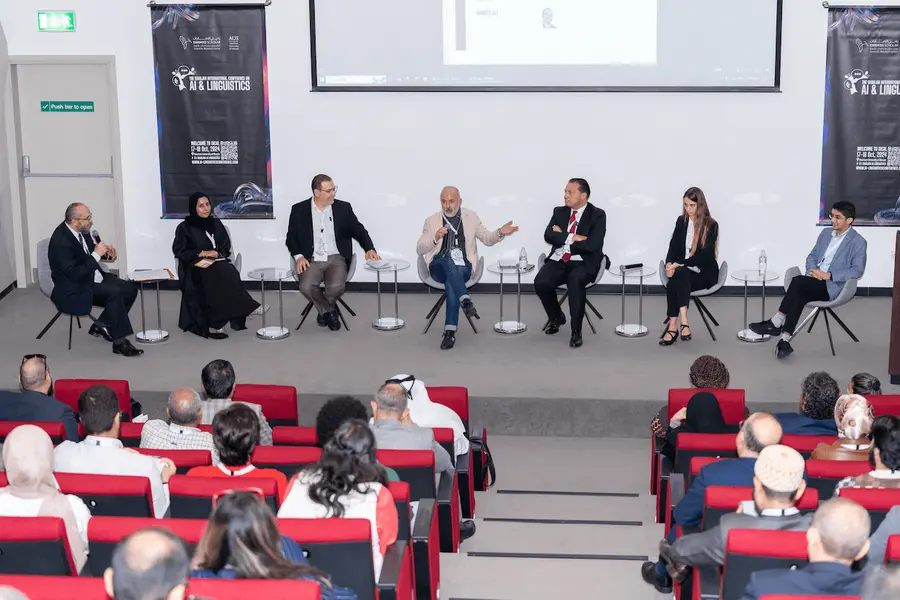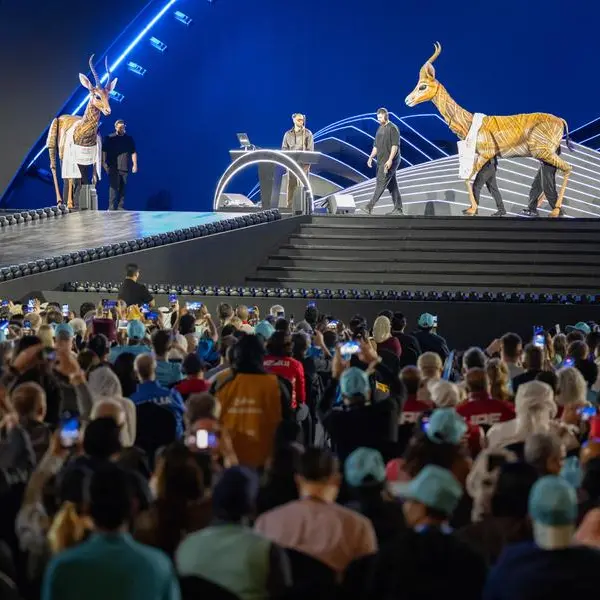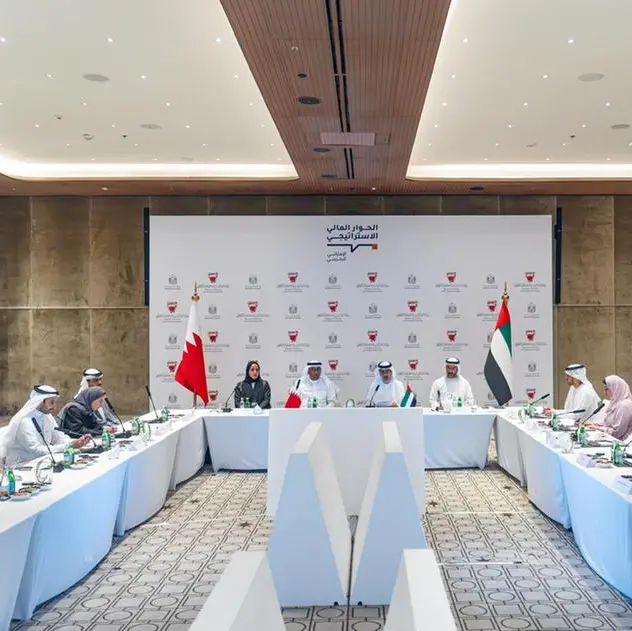PHOTO
- H.E. Ahmed Fouad Hanno, Minister of Culture of Egypt, highlighted the essential role of AI as a strategic partner across sectors, noting its growing influence in medicine, education, and the economy.
- The Conference Concludes with Recommendations to Advance AI Applications in Linguistic Studies and Communication
Sharjah – The first Sharjah International Conference on Artificial Intelligence and Linguistics concluded at the American University of Sharjah, in collaboration with the Emirates Scholar Center for Research and Studies, subsidiary of Emirates science and research foundation, under the patronage of His Highness Sheikh Dr. Sultan bin Mohammed AlQasimi, Supreme Council Member and Ruler of Sharjah,. The event, which took place on October 17–18, 2024, brought together over 600 distinguished academics, researchers, and industry experts. Across two days, participants engaged in around 100 presentations and over 20 workshops, exploring the intersection of AI and language studies.
The conference provided a unique platform for academics, industry leaders, and policymakers to explore the future of language in the digital era. Discussions focused on leveraging AI to enhance global communication while preserving cultural and linguistic diversity. The conference emphasized the transformative role AI plays in reshaping linguistic studies and communication practices.
The Conference is a Milestone in Sharjah's Growth as a Global Hub for Research and Technology Collaboration
H.E. Dr. Abdullah Belhaif Al Nuaimi, Chairman of the Sharjah Consultative council and Chancellor of the Board of Trustees of Emirates Scholar Center for Research and Studies, emphasized that the Sharjah International Conference on Artificial Intelligence and Linguistics represents a significant milestone in enhancing Sharjah’s status as a leading hub for scientific research and global collaboration in technology and research.
He highlighted the Center’s commitment to integrating AI with linguistic studies, promoting international cooperation, and driving innovation in communication technologies, all while preserving cultural identity.
Dr. Al Nuaimi stressed that research collaboration between universities and research centers is crucial for future progress, as scientific research lays the foundation for economic development and sustainable projects.
Additionally, Dr. Al Nuaimi extended his gratitude to H.H. Sheikh Dr. Sultan bin Mohammed AlQasimi for his unwavering support and to H.E. Sheikha Bodour bint Sultan AlQasimi for hosting this significant conference at the American University of Sharjah. He emphasized that such events benefit both the emirate and the nation, contributing to the preservation and promotion of cultural heritage.
Prominent Speakers and Key Themes at the Conference
The Sharjah International Conference on Artificial Intelligence and Linguistics featured several distinguished speakers from various fields, contributing valuable insights throughout the event. Among them were H.E. Ahmed Fouad Hanno, the Egyptian Minister of Culture, and H.E. Ashraf El-Shihy, former Egyptian Minister of Higher Education and Scientific Research. H.E. Ambassador Lorenzo Fanara, Italy's Ambassador to the UAE, also participated, along with Imed Zitouni, Director of Engineering at Google.
Their diverse expertise enriched the discussions, showcasing the intersection of AI, education, technology, and culture.
American University of Sharjah’s commitment to pioneering research
Dr. Tod Laursen, Chancellor of AUS, said: “As we draw the curtain on the Sharjah International Conference on AI and Linguistics, we are proud to have hosted this landmark event, which has brought together global experts to explore the dynamic interplay between artificial intelligence and linguistics. Hosting SICAL 2024 not only showcases AUS' commitment to pioneering research but also paves the way for transformative collaborations in the future. We are grateful to our partners, collaborators, and distinguished guests from across the globe, whose invaluable contributions and active participation have made SICAL a resounding success”.
Conference Sessions: Key Themes on AI and Linguistics
The event explored key themes such as AI advancements in communication tools, AI applications in linguistics, and the impact of technology on cultural identity.
Sessions focused on AI’s influence on communication, including: Advancements in Artificial Intelligence in Communication tools, Enhancing Linguistic Research Through Synergy Between Human Expertise and AI, The Holy Quran language program: its definition and the role of artificial intelligence in its design, The Role of AI in Cultural Translation: Bridging or Distorting Meanings, and AI and the Future of Language Learning: Innovations and Impact. These discussions fostered a collaborative exchange of ideas, demonstrating how AI can reshape communication and education while maintaining cultural diversity.
Collaboration Agreements to Enhance Scientific Research and Innovation
The Emirates Scholar Center of Research and Studies, subsidiary of Emirates science and research foundation signed two Memoranda of Understanding (MoUs) during the conclusion of the Sharjah International Conference on Artificial Intelligence and Linguistics. One MoU was signed with Badr University in Egypt, and the other with the Abjjad Platform, with the aim of fostering joint cooperation in research and academia. These agreements seek to exchange knowledge and expertise, and support initiatives that drive excellence in scientific and educational endeavors.
The MoUs outline a mutual commitment to collaborate across several areas, including conducting joint research on topics of shared interest and facilitating the exchange of experts, researchers, and consultants to leverage each other’s expertise. Additionally, the agreements include provisions for organizing joint activities such as conferences, seminars, lectures, and workshops, along with co-publishing reports and research outputs through simultaneous releases.
These agreements reflect the shared commitment of the Emirates Scholar Center of Research and Studies, Badr University, and the Abjjad Platform to advance scientific research and strengthen their contributions to society through collaborative efforts and academic excellence.
H.E Abdulaziz Almusallam Warns of AI's Creative Implications
H.E Abdulaziz Almusallam, Chairman of the Sharjah Institute for Heritage, cautioned that AI may undermine creative abilities, particularly among younger generations. He emphasized the importance of academic and cultural institutions in ensuring factual accuracy and curbing reliance on AI, noting the growing risks of intellectual complacency and misinformation.
Launch of the Digital and GPT-Powered Historical Arabic Dictionary
During the event, the digital and GPT editions of the Historical Arabic Dictionary were launched, marking a significant step in Sharjah’s efforts to preserve the Arabic language. As the first AI-based platform dedicated to tracing the origins of Arabic vocabulary, the dictionary enhances research with precise search capabilities and easy access to linguistic information. The project reflects Sharjah’s commitment to leveraging modern technology to safeguard the Arabic language amidst the challenges of the digital era.
Vision for the Future: Leadership in AI and Linguistics
Dr. Fawaz Habbal, Director-General of Emirates Scholar Center of Research and Studies, subsidiary of Emirates science and research foundation, emphasized the conference’s role in strengthening research collaboration and uniting academia and industry. He highlighted the center’s efforts to harness knowledge from the conference to develop innovative research initiatives that empower the UAE to address the challenges of the digital age. Dr. Firas Habbal, President and Vice Chancellor of the Emirates Scholar Center for Research & Studies, reiterated the institution’s commitment to intellectual exchange, fostering a global network of experts to shape the future of AI applications in linguistics.
Conference Recommendations and Outcomes
The Sharjah International Conference on Artificial Intelligence and Linguistics concluded with several key recommendations aimed at advancing the application of AI in linguistic studies and communication.
Participants emphasized the importance of enhancing interactivity during panel discussions by incorporating tools like live polling, real-time Q&A sessions, and audience feedback systems. These tools are expected to facilitate greater engagement and generate actionable insights during discussions. Additionally, the conference recommended hosting practical workshops, providing participants with hands-on experience to explore and interact with AI-powered linguistic technologies. Another critical outcome was the call for the inclusion of more case studies from diverse regions—including Europe, Africa, and Asia—to deepen the understanding of how AI can be utilized to manage linguistic diversity in different cultural contexts.
The conference also focused on regional advancements in AI within the Arab world, proposing the introduction of a dedicated session to highlight regional innovations and stimulate greater interest in local developments. Furthermore, participants suggested publishing a special issue in a peer-reviewed journal based on the research and discussions presented at the conference, creating a platform for ongoing academic dialogue and serving as a reference for future work in the fields of AI and linguistics.
The recommendations also highlighted the value of exploring the intersection between AI, psychology, education, and history, offering a broader perspective on the cognitive and cultural impacts of AI in language studies. Smaller breakout sessions following keynotes were suggested to allow deeper engagement with presented topics. These outcomes reflect the conference’s commitment to enhancing the academic and practical value of its discussions and ensuring it remains at the forefront of innovation in both AI and linguistics.
Gratitude for the Patronage of H.H. Sheikh Dr. Sultan bin Mohammed AlQasimi,
Participants expressed their deep gratitude to H.H. Sheikh Dr. Sultan bin Mohammed AlQasimi, for his generous support, which reflects his dedication to science, culture, and knowledge. Attendees commended his efforts to promote knowledge exchange, preserve cultural heritage, and foster the development of research institutions, recognizing his leadership as a model of wisdom and generosity.




















